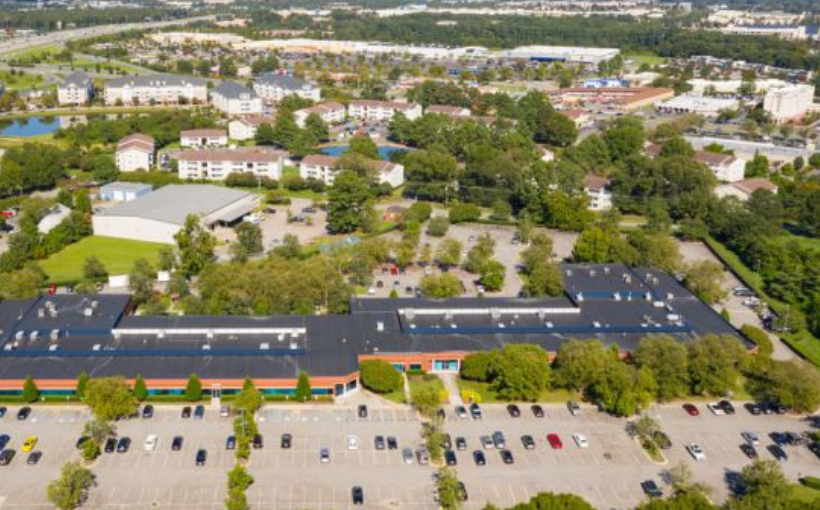TheGuarantors is a leading provider of risk mitigation solutions for multifamily owners and operators. Their product suite includes lease guarantees, security deposit replacements, renters insurance, master tenant liability and compliance platforms which streamline leasing processes and protect against financial risks. We spoke with Aaron Victorson, SVP at TheGuarantors about current trends in multifamily risk management.
Q: What are the latest trends in ancillary revenue and expense management among operators?
A: In the multifamily sector, there are three prominent trends emerging. Firstly, operators are actively seeking ways to generate additional ancillary revenue opportunities. Many C-suite executives are reevaluating long-standing programs such as renters insurance to capitalize on potential referral fees or upcharges for force-placing master policies. This approach is crucial in property management as every dollar adds up significantly over time.
Secondly, rising costs have led operators to closely manage expenses down to fractions of a dollar per unit by negotiating with existing vendors for cost reductions wherever possible. Common targets include PMS vendors and providers of fiber optics,cable,Wi-Fi,and insurance services.Contract renegotiations help drive cost savings while also saving valuable time – an unspoken currency in property management.
Lastly,in order to proactively manage bad debt,risk-averse landlords have started adopting security deposit alternatives like those offered by TheGuarantors that offer protection at no cost.This mitigates the financial impact from write-offs even during times when rents,demand,and occupancy rates may be high.Economic occupancy has become more important than just filling units these days.
Q: Is renter default a prevalent risk that apartment landlords often overlook?
A: Renter default consistently leads to loss of revenue and increased vacancy rates for landlords.Job loss,sudden healthcare costs,major life changes can all leave residents unableto pay rent.We see this affecting even high-income earners livingin Class A properties.Traditionally,the focus has been on leasing,but with the compounding challenges of higher turn costs due to supply chain issues and increased interest rates,operators are now more focused than ever on economic occupancy.
Q: What proactive measures can landlords take to minimize the risk of default?
A: At TheGuarantors,we always advise our clients to proactively reduce renter default risk by conducting thorough screenings on prospective residents. This includes identifying common causes of defaults at their properties and screening against them. For example,some landlords struggle with choosing a fraud screening provider as they may not realize there are different types of fraud such as income or identity theft.There needs to be a balance between filtering out risky applications while also keeping the application process smooth for residents.We recommend tracking manually caught fraudulent activities before investing in full-fledged tools.
Screening is an essential tool,but it cannot catch everyone.That’s why many operators choose our lease guarantee solution.During the lease,it is importantto maintain open communication lines with residents.Especially for groups like students or international renters who may not fully understand their lease terms,early intervention can prevent issues from escalating.Flexible payment plans for those facing temporary financial setbacks can also help avoid missed payments and evictions downthe road.Additionally,the useof technology like online rent collectionand automated late fee assessments creates accountability,reduces manual work,and helps chase down late payments.
Overall,taking steps such as qualifying tenants,understanding their circumstances,and streamlining communication empower landlords to address nonpayment issues before they escalate into bigger problems.
Q: When workingwith clientson protecting againstrenterdefaults what guidance do you typically provide?
A: Our core guidance isto utilize upfrontrisk mitigation solutions that minimize exposure from defaults.Our suiteof solutions includinglease guarantees,security deposit replacements,master policies,and renters insurance safeguard against various sourcesof lost incomefromthe momenta leasewassigned.Weadvise implementing these protections across your entire portfolio rather than reacting after defaults occur.This preventive approach ensures operators have financial resources to fall back on if residents stop paying rent and safeguards against potential market adjustments. As Warren Buffett said, “Only when the tide goes out do you learn who has been swimming naked.” During economic downturns,unprepared landlords come to us frantically for coverage that cannot be applied retroactively while our existing clients can sleep better at night.
We also guide clients on implementing strong screening criteria,customized resident incentives,and technologyto automate compliance monitoring.These proactive measures help reduce defaults by being prepared rather than reactive.This approach helps sustain NOI and avoid revenue interruptions from the outset.




